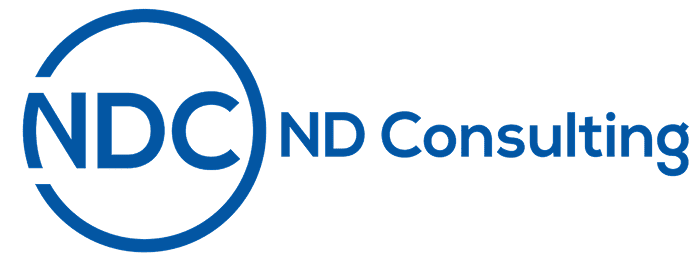Affordable housing administration has long been a complex and highly regulated field. For housing authorities, nonprofit organizations, and property managers overseeing low-income housing, managing compliance, occupancy, and tenant services often requires juggling multiple systems and workflows. Yardi public housing offers specialized solutions in this regard designed to streamline administration, improve compliance, and modernize operations for the future.
According to the National Low Income Housing Coalition, the United States faces a shortage of over 7 million affordable and available rental homes for extremely low-income households. Tools like Yardi act as catalysts for efficiency, allowing administrators to focus on resident support and program success rather than manual processes.
Streamlining Operations with Yardi Public Housing
Yardi public housing is built to handle the unique demands of affordable housing management. Unlike standard property management software, Yardi integrates specialized modules that address HUD compliance, tenant income verification, and subsidy tracking.
For administrators, this translates to more accurate and timely reporting. Automated workflows reduce errors in data entry, while dashboards provide real-time insights into occupancy rates, funding allocations, and program metrics.
According to a report by Appfolio, affordable housing operators believe an average of 16.5 hours per week could be streamlined or optimized through the use of technology. A statistic that highlights the efficiency gains possible with Yardi.
Key Capabilities for Public Housing Administration
Tenant Management:
Yardi’s system tracks all resident information, including income certifications, lease renewals, and eligibility status. This reduces manual oversight and fosters compliance with program requirements.
Subsidy Coordination:
For agencies managing multiple funding sources, Yardi subsidized housing tools consolidate reporting and automate the reconciliation of payments, freeing staff from tedious calculations.
HUD and Compliance Integration:
With Yardi compliance for HUD programs, agencies can generate necessary reports, monitor deadlines, and maintain audit-ready documentation seamlessly.

These capabilities are crucial for meeting federal and state regulations while maintaining operational efficiency. The integration of Yardi housing authority software makes sure that housing agencies can centralize processes that were once fragmented across spreadsheets, paper forms, and standalone applications.
Using Data for Better Decision-Making
One of the defining features of Yardi public housing is its ability to turn raw operational data into actionable insights. Multifamily housing administrators often deal with thousands of residents, each with unique eligibility requirements and lease agreements. By taking advantage of Yardi’s reporting and analytics modules, organizations gain an in-depth view of their housing portfolio.
Real-time dashboards allow staff to monitor key metrics such as unit turnover rates, lease expirations, and funding utilization. The impact is measurable: agencies using Yardi affordable housing solutions report a significant increase in on-time reporting accuracy, which in turn supports better funding decisions and resident satisfaction.
Improving Resident Services Through Technology
Administrative efficiency is only one part of the equation. A modern affordable housing program also requires robust resident engagement. Yardi addresses this through tools that simplify communication and service delivery.
Residents can submit maintenance requests, update income information, or track lease progress via self-service portals, reducing the administrative burden on staff while giving residents transparency and control over their interactions with housing authorities.
Yardi low-income housing management tools also include workflow automation that prioritizes tasks such as inspection scheduling, rent collection follow-ups, and compliance checks. This helps mitigate the risk of missed deadlines and makes sure that both residents and administrators are supported in their respective roles.
The Role of Compliance in Affordable Housing
Compliance is a constant concern for public housing administrators. Regulations surrounding tenant eligibility, income verification, and subsidy allocation are stringent, and errors can result in financial penalties or program sanctions.
Yardi public housing simplifies compliance by embedding regulatory requirements directly into the workflow. Automated alerts notify administrators when documentation is missing or deadlines are approaching, while built-in audit trails make it easier to demonstrate adherence to federal and state rules. By integrating compliance management with day-to-day operations, Yardi reduces risk and provides confidence that housing programs remain in good standing.
Preparing for the Future of Affordable Housing
As the affordable housing sector evolves, technology will play a central role in shaping program delivery. Yardi public housing is designed with scalability in mind, allowing agencies to expand their portfolio, integrate with new funding sources, and adapt to changing regulatory environments without overhauling their systems.
Emerging trends such as data-driven funding allocation, predictive maintenance for properties, and digital resident engagement platforms all point toward a future where housing management is more efficient and responsive. With Yardi housing authority software, agencies are positioned to adopt these innovations while maintaining day-to-day operational stability.
Why Agencies Choose Yardi
The decision to implement Yardi public housing is often driven by three factors: efficiency, compliance, and resident satisfaction. Agencies report that the software’s integrated approach allows staff to focus on meaningful work, rather than administrative bottlenecks.
- Automated workflows reduce manual errors.
- Centralized data management improves reporting accuracy.
- Resident self-service portals enhance engagement and transparency.
A recent industry study found that housing authorities using integrated software solutions experienced a reduction in reporting errors and improvement in resident communication effectiveness. These outcomes demonstrate that the benefits of Yardi extend beyond administrative convenience; they directly impact the quality of housing services delivered to residents.
Yardi and Public Housing Innovation
The future of affordable housing administration is closely tied to technological adoption. Software like Yardi public housing not only addresses the operational challenges of today but also positions agencies to meet the demands of tomorrow.
From integrating emerging analytics tools to enabling mobile workflows for staff in the field, the platform provides a foundation for continuous innovation. Housing authorities that use these capabilities can reduce costs, improve compliance, and ultimately deliver better services to residents, making sure that public housing programs remain sustainable and effective.
Conclusion
Affordable housing administration requires a delicate balance of efficiency, compliance, and resident engagement. Yardi public housing offers a comprehensive suite of tools designed to meet these needs while simplifying complex workflows. By integrating compliance tracking, subsidy management, resident portals, and data analytics, Yardi transforms administrative processes into streamlined operations capable of scaling for the future.
For agencies committed to improving public housing outcomes, adopting Yardi public housing is a strategic decision that improves operational resilience and empowers staff to focus on delivering high-quality housing services.





